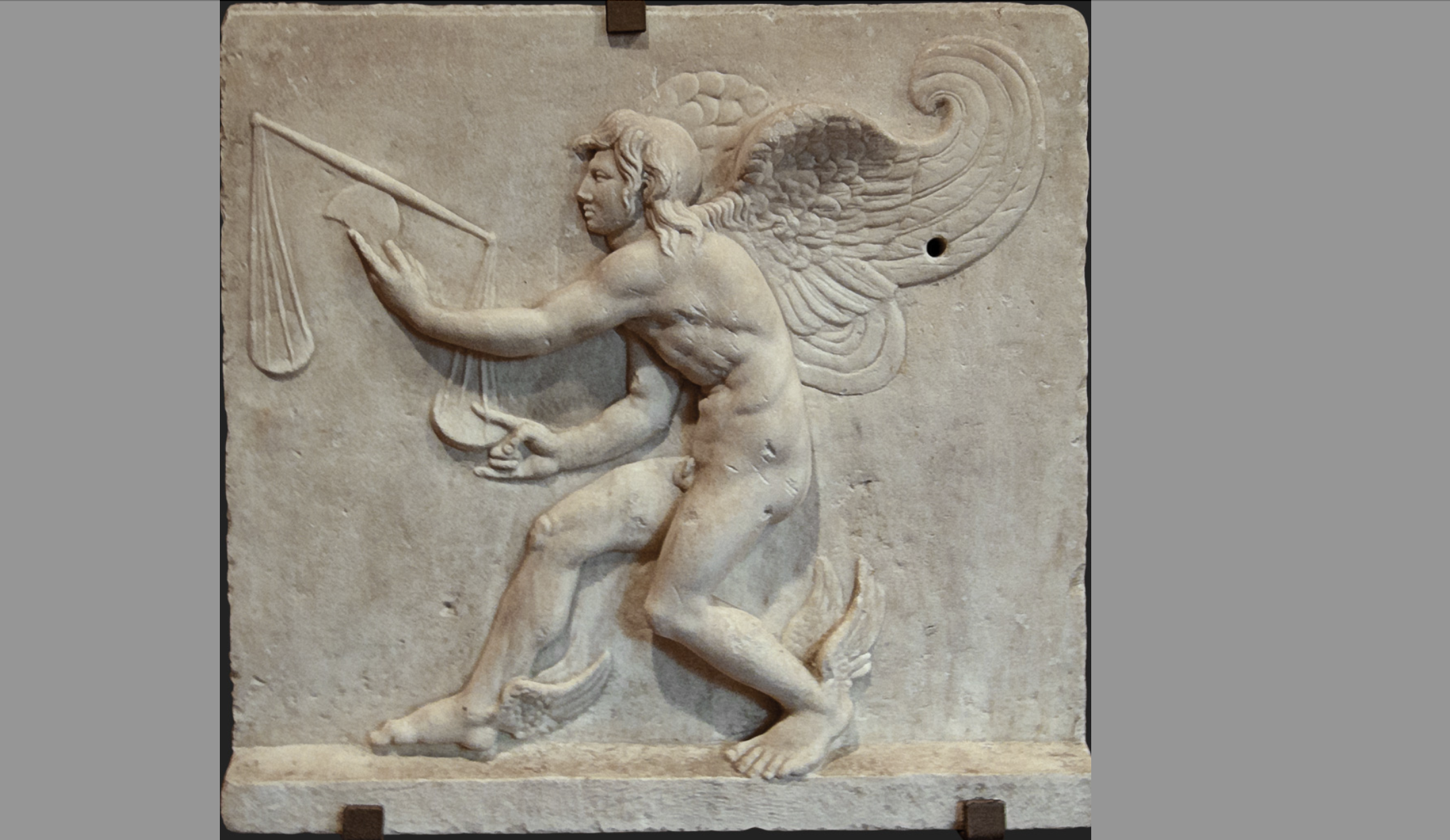“Cover Art Credit: Feng Shui London UK – Exploring Greek Time Concepts in Feng Shui (2024)
Welcome back to Serendipity Unleashed – newsletter, where we explore the unexpected twists that make life richer and more meaningful. Last week, in “Beyond Interpersonal Serendipity: Kairos as the Art of Timely Encounters,” we delved into why those celebrated “X met Y and everything changed” stories often miss the mark on true serendipity. We touched on survivorship bias, the asymmetry of human agency, and introduced Kairos as the god of the opportune moment – that fleeting alignment where readiness meets possibility. I promised we’d dive deeper this week, expanding beyond Kairos as a mythological figure to unpack the profound contrast between Chronos and Kairos timeframes. We’ll explore what these ancient Greek concepts reveal about our modern lives, drawing from my blog post “Why Do We Treat Our Time as Currency?” for some foundational insights.
If you shared your Kairos moments in the comments last time in Linked In – thank you! Stories like Charles Blair’s nod to Shakespeare’s “tide in the affairs of men” remind us that opportunity isn’t just luck; it’s about sensing the current and riding it. Now, let’s build on that. In a world obsessed with productivity hacks and packed calendars, understanding Chronos vs. Kairos isn’t just philosophical – it’s a blueprint for reclaiming joy, creativity, and yes, serendipity. But here’s the intriguing twist we’ll unravel today: In Chronos time, a rich, happy, or successful person might boast, “I have money, I have resources.” In Kairos, true wealth whispers a different truth: When someone pleads for an urgent meeting, help, or advice, the response is simply, “Yes, I have time.” Ponder that – it’s not about clocks or calendars; it’s about freedom in the flow.
The Tyranny of Chronos: Time as a Linear Chain
Imagine time as a straight line: ticking forward relentlessly, measured in seconds, minutes, hours. This is Chronos – the ancient Greek embodiment of chronological, quantitative time. It’s the clock on your wall, the calendar app pinging reminders, the industrial-era invention that turned human effort into billable hours.
As historian E.P. Thompson observed, “Time is now currency: It is not passed but spent.”
In my blog, I argue that this mindset has turned us into slaves of scarcity. We all start with the same 24 hours, yet we monetize them ruthlessly. Think of the rural peasant in Malawi, spending 35% of her day farming, 33% cooking, and 17% fetching water – her time devoured by survival. Even in affluent societies, we’ve inherited this: factory clock cards evolved into office time-tracking apps, endless meetings, and “busyness” as a status symbol. Matt Ridley, in The Rational Optimist, nails it: prosperity is “saved time,” where an object’s worth is the hours it takes to acquire. But this creates a trap – we “buy” time with money, only to fill it with more obligations.
Chronos dominates our lives because it’s predictable and controllable. It fuels linear thinking: plan the past, execute the present, forecast the future. In the industrial era, this was genius – it built empires and economies. But in our postnormal, VUCA (volatile, uncertain, complex, ambiguous) world of exponential tech and global disruptions, Chronos feels like a straitjacket. Full calendars become prisons; 80% of those seminars and workshops? Wasted breath, as one friend shared on my Facebook thread.
It breeds haste, where “life is what happens while you’re busy making other plans,” as John Lennon quipped.
The dark side? When time is currency, we lose the magic of the moment. We rush through experiences, valuing quantity over quality, and miss the anomalies – those serendipitous sparks – because we’re too busy checking the clock. And here’s where it gets philosophical: In this Chronos-driven existence, even the wealthiest among us are paupers if every request for our presence is met with “I’m too busy, let’s get back next month.” True abundance? It’s measured not in bank balances, but in the luxury of availability.
Kairos: The Dance of the Opportune Moment
Now, contrast that with Kairos – not a line, but a swirl, a whisper, a sudden opening. In Greek mythology, Kairos, as we learned last week, is depicted as a youthful god, balanced on tiptoe with wings on his heels, a razor in hand, and long forelocks but a bald back (grab him as he approaches, or he’s gone forever). As the Roman poet Ausonius captured in an epigram quoted by Erasmus: “I am the god of Opportunity, rarely seen and only recognized by a few… To teach you the value of the fleeting moment.”
Kairos isn’t about measuring time; it’s about qualitative time – the right moment for action, ripe with potential. It’s spontaneous, demanding presence and intuition. Wikipedia sums it up well: “Kairos is the indeterminate moment that is right for something to occur,” requiring knowledge of your environment and the courage to seize it.
Forgotten in Western culture during the industrial boom (because who needs spontaneity on an assembly line, or in call-center work?), Kairos is making a comeback in our chaotic era. It’s the flow state where time dissolves – that “eternal moment” in deep conversation or creative breakthrough, where hours fly by unnoticed. As I shared in my blog, self-employment taught me this: ditching rigid schedules for “serendipity slots” – empty spaces in my calendar for the unexpected. No boss, no mortgage grind; instead, a rocking chair for reflection, a lake walk on a Tuesday. BTW. that blog post (penned back in 2017), remained undated in this text – a deliberate choice born of my Kairos-driven life, free from daily routines and their chronological shackles. I’m deeply thankful for that freedom, and it proves the point: true insights on time don’t expire; they’re timeless, resurfacing when the moment calls.
Kairos lets me say, “I have time,” turning urgency into opportunity.
In life, Kairos means harnessing serendipity not through force, but flow. It’s spotting an anomaly (like a chance LinkedIn comment leading to collaboration) and acting before the window closes. Unlike Chronos’ grind, Kairos rewards the prepared mind – think Pasteur’s “chance favors the prepared” – turning “what if” into “why not now?” And philosophically, this is where wealth redefined shines: The Kairos-rich aren’t hurried; they gift their presence freely, enriching connections in ways money never could.
Kairos in the Mind: Imagination as the Radical Anchor in an Unpredictable World
Here’s a radical yet genius twist: While our daily routines – the meetings, commutes, and checklists – operate squarely in Chronos time for essential coordination and predictability, our imagination thrives in Kairos mode. And here’s where language reveals cultural wisdom: In Finnish, the word for imagination is “mielikuvitus,” literally breaking down to “mieli” (mind) and “kuvitus” (illustration), evoking a “mind illustrated” or a vivid “mind movie.” English falls short with its abstract “imagination,” but this Finnish term captures the essence – a dynamic, visual playground where ideas flicker like scenes in a film.
Think about it: In our dreams or daydreams, time isn’t linear. Past memories blend seamlessly with future fantasies, and the “now” morphs chaotically into what-ifs and might-have-beens. This non-linear dance isn’t chaos for chaos’s sake; it’s our brain’s way of rehearsing serendipity. Kairos in the mind allows us to simulate surprises, pivot through hypotheticals, and emerge resilient. In a VUCA world of pandemics, AI disruptions, and geopolitical shocks, Chronos might shatter under the weight of the unexpected – rigid plans crumbling like a house of cards. But Kairos? It bends, adapts, and even celebrates the anomaly.
This internal Kairos keeps us sane by providing a mental sanctuary where we can process unpredictability without the constraints of the clock.
It’s why artists, inventors, and entrepreneurs often credit “aha” moments to showers or walks – spaces where imagination roams free from Chronos’ tyranny. By embracing this, we don’t just survive surprises; we turn them into authentic serendipity. So, next time you’re lost in a mind movie, recognize it as your innate Kairos superpower, equipping you for the world’s wild rhythms. And consider: If imagination is our timeless refuge, isn’t saying “I have time” the ultimate act of imaginative freedom?
Chronos vs. Kairos: What They Mean for Our Lives
So, why pit these two? Because they shape how we live, work, and connect – and redefine what it means to be truly rich.
Aspect. Chronos (Linear Time). Kairos (Opportune Time).

In our lives, Chronos keeps the trains running (literally and metaphorically), but over-reliance starves the soul. Kairos injects vitality – it’s why a spontaneous coffee chat sparks a breakthrough, while a forced meeting flops. The blog’s wisdom (FB stream) rings true:
Stop “spending” time; start “harnessing” or “celebrating” it. Respect your hours, and others’, by leaving room for the divine interruption.
But balance is key. Pure Chronos? Robotic existence. Pure Kairos? Chaos without direction. The art is blending them: Use Chronos to structure your day, but carve out Kairos for wonder. As a serial explorer (founder of seven companies since 1984), I’ve learned this the hard way – unplug from synchronous drudgery, embrace the multidimensional tick of time.
Cultivating Kairos: Practical Steps for Serendipitous Living
Ready to invite more Kairos – and that profound sense of temporal wealth? Here’s how:
- Create Serendipity Slots: Block “empty” time in your calendar – not for tasks, but openness. Use it for walks, reading, or simply staring at clouds. Anomalies hide in the unplanned.
- Practice Presence: Mindfulness apps or journaling to tune into the now. Ask: “Is this the right moment?” Feel the energy shift.
- Build Readiness: Kairos favors the prepared. Read widely, network loosely, reflect daily. Our authentic serendipity grows from this.
- Share and Reflect: Tell your Kairos tales. Did a delayed flight lead to a life-changing conversation? Comment below – let’s crowdsource the art of timing.
In 2025, with AI curating our feeds and algorithms simulating chance, Kairos is our rebellion – a reminder that true serendipity blooms in the gaps, not the grind.
Closing Thought: Let Kairos Guide Your Week
As we wrap up, remember: Chronos marches on, but Kairos dances through. Don’t let time own you; own the moments that matter – and redefine your wealth by saying “Yes, I have time” more often. May you spot Kairos this week – that tiptoe god with wings – and grasp his forelock before he slips away.
What’s your take? Have you shifted from Chronos slavery to Kairos freedom? When was the last time you said “I have time” and meant it? Share in the comments, and let’s keep the conversation flowing. Next week: Diving into the science of spaciousness and how it amplifies Kairos – stay tuned!
May Kairos be with You!





